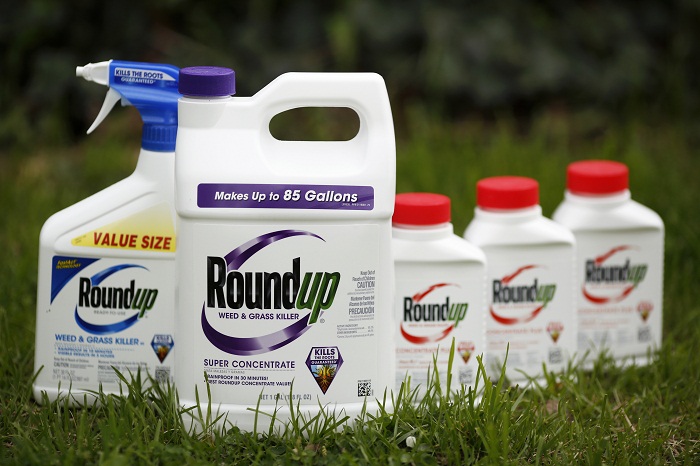The verdict was “a greatest win for all Roundup induced NHL claimants and a devastating loss for Bayer/Monsanto,” a lawyer for another plaintiff said.
A government jury in San Francisco has discovered that a usually utilized weed executioner assumed a critical job in causing a California man’s malignant growth, conveying another hit to the agrochemical mammoth Monsanto as it battles a comparable choice achieved a year ago.
In a decision reported Tuesday, members of the jury decided for Edwin Hardeman, a 70-year-old Sonoma County man, finding that introduction to the herbicide Roundup was “a generous factor” in the improvement of his malignant growth.
The case will presently proceed onward to a second stage where the jury will think about whether Monsanto, presently Bayer, knew and covered data about the potential mischief its item could cause, and choose whether to grant any harms to Hardeman.
“Mr. Hardeman is satisfied that the jury collectively held that Roundup caused his non-Hodgkin’s lymphoma. Presently we can concentrate on the proof that Monsanto has not taken a mindful, target way to deal with the wellbeing of Roundup,” Hardeman’s lawyers, Aimee Wagstaff and Jennifer Moore, said in a joint proclamation. “We anticipate showing this proof to the jury and considering Monsanto responsible for its awful lead.”
It is the lead instance of a multidistrict prosecution including in excess of 1,600 offended parties in the US District Court for the Northern District of California and the second claim that has gone to preliminary charging Monsanto’s glyphosate-based items cause disease.
In August 2018, a jury in California state court granted Dewayne Johnson, a man with a terminal disease who filled in as a janitor for a San Francisco Bay Area school locale, about $290 million in harms. The decision was later decreased to $78.5 million and is on claim.
The result of Hardeman’s case could be a pointer for how a large number of different cases will go. As of January, Monsanto was confronting claims from more than 11,000 plaintiffsclaiming introduction to glyphosate-based items caused them hurt, as indicated by Bayer.
Michael Baum, of Baum Hedlund Law, one of the organizations that spoke to Johnson, disclosed to Express Daily in an email that while Tuesday’s decision won’t really set settlement benchmarks for alternate cases in the multidistrict case, it was “a tremendous success for all Roundup incited NHL petitioners and an overwhelming misfortune for Bayer/Monsanto.”
Hardeman was determined to have non-Hodgkin’s lymphoma in February 2015 in the wake of utilizing Roundup to execute poison oak and other obtrusive plants on his 56-section of land property for over two decades.
The claim charges that Hardeman’s long haul introduction to Roundup caused his disease and that Monsanto knew or ought to have known about the dangers and neglected to give sufficient alerts about the mischief related with utilizing the item.
Jennifer Moore, a lawyer for the Sonoma County man, said Hardeman utilized Roundup consistently, showering roughly 6,000 gallons of the herbicide throughout 26 years.
“They had a huge toxic substance oak issue and he needed to splash normally to shield the toxin oak from assuming control over the climbing trails from assuming control over their water framework from infringing into their drains on to their rooftop,” Moore revealed to Express Daily News a week ago.
Since his analysis, Hardeman has experienced six rounds of chemotherapy and now goes in for normal sweeps to check whether the malignancy is returning, Moore said.
“He’s not out of the forested areas yet,” she said.
Monsanto, which was procured by the German pharmaceutical organization Bayer a year ago, has kept on argueing that the herbicide is sheltered.
In an announcement Tuesday, Bayer, said it was disillusioned in the jury’s choice and repeated the organization’s attestation that glyphosate-based items don’t cause malignant growth.
“We are certain the proof in stage two will demonstrate that Monsanto’s direct has been proper and the organization ought not be at risk for Mr. Hardeman’s malignant growth,” the organization said. “We have extraordinary compassion toward Mr. Hardeman and his family, however a broad collection of science bolsters the end that Roundup was not the reason for his malignant growth. Bayer remains behind these items and will vivaciously shield them.”
In 2015, the World Health Organization’s International Agency for Research on Cancer arranged glyphosate as presumably cancer-causing to people, however a draft report by the US Environmental Protection Agency has finished up the herbicide isn’t probably going to be cancer-causing to people.
The EPA’s overseer general is exploring reports that an office worker intrigued with Monsanto to direct one-sided inquire about on glyphosate.
In a request issued prior this month, District Court Judge Vince Chhabria, who is regulating the Hardeman case, scrutinized the organization’s examination of the potential dangers of the herbicide.
“In spite of the fact that the proof that Roundup causes malignant growth is very ambiguous, there is solid proof from which a jury could presume that Monsanto does not especially mind whether its item is in reality giving individuals disease, concentrating rather on controlling general assessment and undermining any individual who raises certifiable and real worries about the issue,” Chhabria composed.
In 2017, Chhabria unlocked archives that recommended the agrochemical organization had secretly composed logical papers and worked with an EPA authority to stop a survey that would have been led by the US Department of Health and Human Services.
